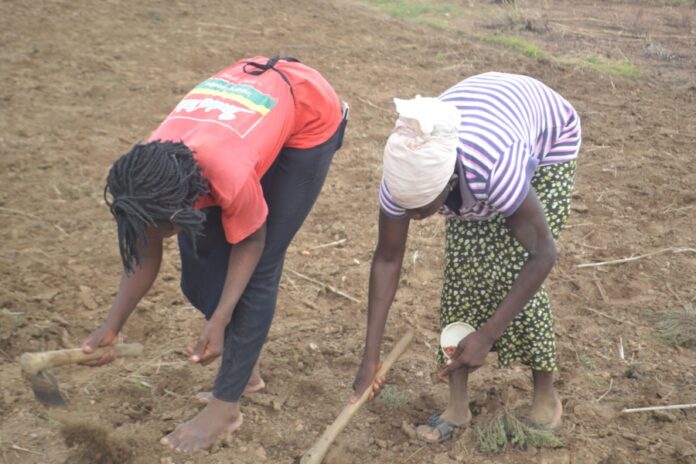
Illustrative Image: Addressing Climate Change in Ghana: Building Resilient Agriculture and Sustainable Development Pathways
Image Source & Credit: weADAPT
Ownership and Usage Policy
Africa, despite contributing minimally to global greenhouse gas emissions, is experiencing some of the harshest effects of climate change. The continent is grappling with intensified weather events such as droughts, erratic rainfall, windstorms, and cyclones. These phenomena exacerbate land degradation, diminish soil fertility, and lead to pest proliferation, all of which threaten Africa’s health, livelihoods, and food security.
Ghana, like many African nations, is witnessing shifts in temperature, altered rainfall patterns, and a rise in the frequency and severity of extreme weather events. Floods are more common in high-rainfall areas in the center and west of the country, while droughts predominantly impact the north and southeast. Additionally, storms have intensified over recent decades. These climatic changes significantly affect Ghana’s economy, food security, and the lives of its people, given that agriculture is the backbone of the country’s economy.
Agriculture supports over 50% of Ghana’s workforce, contributes more than 60% of rural household income, and plays a crucial role in food security through smallholder farmers. These farmers, often among the poorest in the country, are particularly vulnerable to climate change due to their limited resources and capacity to manage unforeseen crises. Hence, targeted policies and practices that enhance resilience to climate impacts are essential. Adapting to climate change requires localized and context-specific strategies tailored to the unique challenges faced by different communities.
Addressing these challenges involves adopting an integrated approach to agriculture and environmental management, enhancing risk preparedness, promoting sustainable energy production, modernizing transportation systems, and building resilient infrastructure. The Ghanaian government has initiated several reforms to transform the agricultural sector, with the flagship “Planting for Food and Jobs” (PFJ) program aimed at improving food security and livelihoods. This program focuses on enhancing public expenditure, strengthening extension systems, improving market access, promoting relevant agricultural technologies, and building capacity among key sector players. Strategic investments in infrastructure have also been made to boost sector efficiency.
Investing in climate-resilient practices across the agricultural value chain—encompassing production, storage, processing, and marketing—is crucial yet challenging. An integrated approach that combines climate change adaptation with agricultural interventions is necessary to stabilize crop yields, enhance incomes, improve nutritional value, and build systems for early warning and resource management. These efforts at the community level can collectively contribute to national impact.
Ghana’s Nationally Determined Contributions (NDCs) and National Adaptation Policy Framework underscore the importance of community-led adaptation and contextually relevant climate measures. These policies highlight the need for sustainable forest management, climate-resilient agriculture, expanded agricultural insurance, community-led conservation, early warning systems for floods, droughts, and pest infestations, and strengthened disaster risk management. However, Ghana, like many African countries, must ensure that national policies and resources are effectively integrated and outcome focused.
To address the unpredictable challenges posed by climate change, Africa must build its development pathways on a foundation of evidence, science, and continuous learning. Data-driven research and evidence-based policies are essential for identifying effective interventions. For instance, research can determine the most resilient agricultural practices to drought, enabling policymakers and the private sector to support farmers in adapting to a changing climate. Similarly, scientific analysis can uncover the root causes of economic downturns, guiding the development of targeted policies for growth and job creation. Predictive modeling and evidence-based policymaking are vital for designing interventions that avoid unintended consequences.
In the upcoming week, AGRA, ICED, and their partners will gather in Accra, Ghana, to showcase evidence-based approaches and learning in building resilience. Their focus will include climate-smart agriculture, seed system development, integrated soil health, and regenerative systems. This convergence underscores the importance of leveraging evidence and science to navigate Africa’s complex food systems and build a more resilient future.









